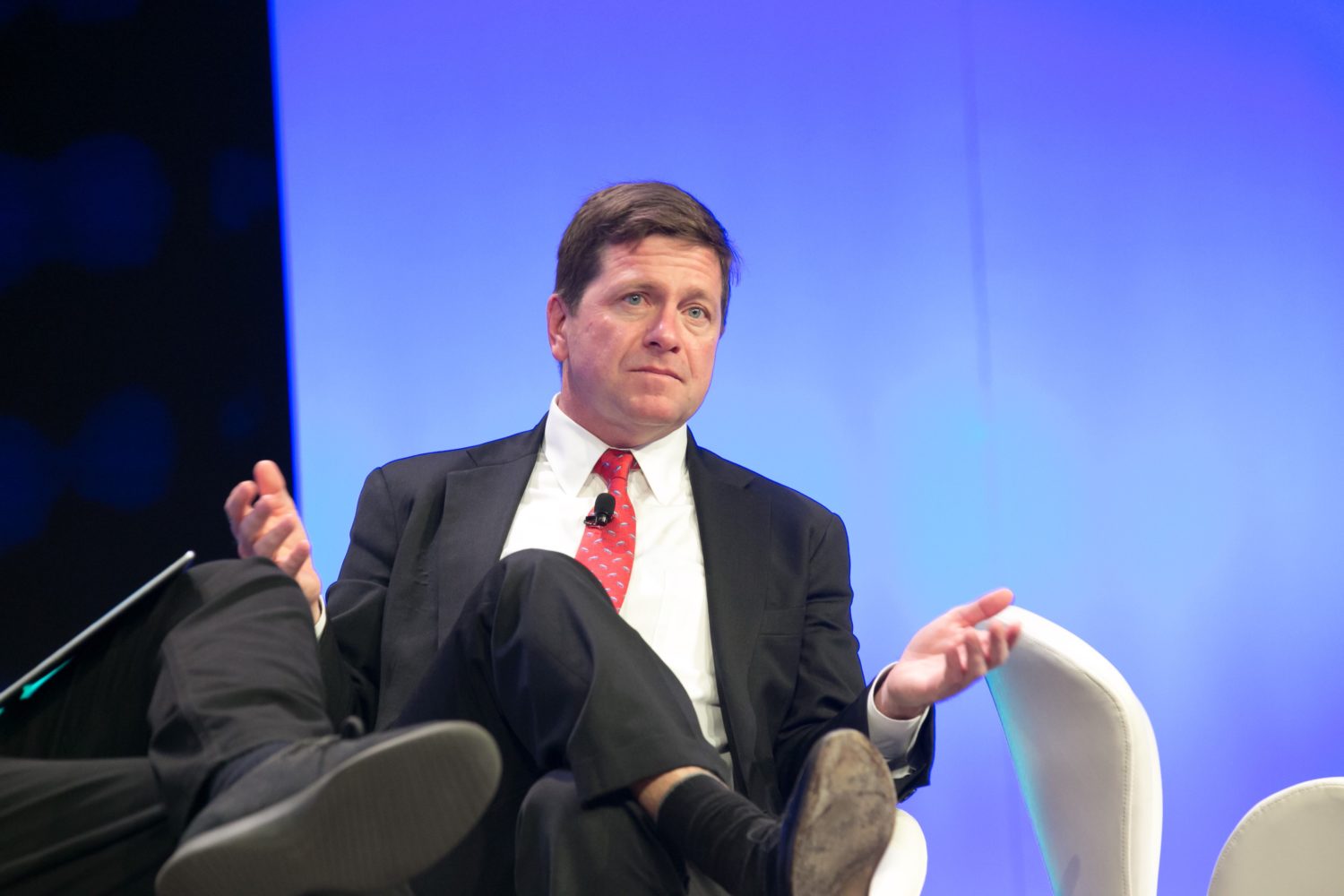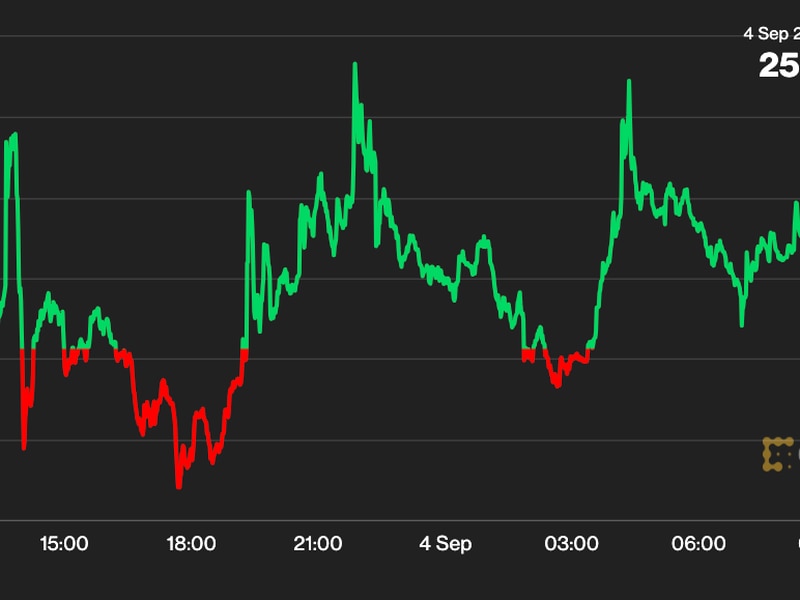Crypto Chip Company Katena Wins Lawsuit Filed by Bitcoin Miner Coinmint
/arc-photo-coindesk/arc2-prod/public/LXF2COBSKBCNHNRE3WTK2BZ7GE.png)
Crypto technology firm Katena Computing didn’t trick miner Coinmint into a $150 million purchase agreement, a panel of arbitrators ruled last month in the mining company’s suit against Katena and a semiconductor company called DX Corr.
Coinmint alleged in a lawsuit filed last year that Katena and DX Corr conspired to trick it into purchasing $150 million worth of bitcoin mining machines that were never delivered. Coinmint, in the suit, claimed that Katena bribed or otherwise influenced Coinmint’s former chief financial officer, Michael Maloney, to secure the sale, knowing full well it wouldn’t be able to deliver mining chips it was still developing. The mining company demanded $23 million it had paid to Katena back.
A panel of arbitrators ruled in February that Katena hadn’t violated its agreements or deceived Coinmint, denying all of Coinmint’s claims and awarding Katena just over $14 million.
The arbitration panel found, according to a document filed in the court docket, that the evidence suggested Coinmint and its executives independently chose to make the $150 million purchase, “without pressure or influence by Katena,” after initially negotiating a $100 million deal that Coinmint itself raised to $150 million.
The panel also ruled that Katena hadn’t breached any contracts in its agreements with Coinmint, saying that Coinmint itself admitted it hadn’t met all of the conditions it needed.
While Coinmint cited text messages shared between Katena executives as evidence the company was influencing Maloney, the panel said in its report that these messages were more “brainstorming and ambitious chatter” than concrete evidence the company was actively moving to hire the then-CFO at Coinmint.
The panel also ruled that Katena hadn’t misrepresented the state of a chip it was developing in marketing materials to Coinmint.
“Katena submitted extensive evidence – without any evidentiary rebuttal or impeachment by Coinmint – concerning the design of the ASIC [application-specific integrated circuit] chip for the K10 and getting the chip design ready for submission to the foundry, including running simulations to test for errors in the chip’s design,” the artibrators’ order said.
Katena also submitted other evidence that suggested it was actively working to manufacture the chips and miners it intended to sell Coinmint, refuting one of Coinmint’s claims that Katena did not intend to produce the machines.
“We went through a full discovery process in which Katena produced everything according the panel’s orders, in which Coinmint avoided producing everything,” said Michael Gao, a founder and partner at Katena. “We both had the opportunity … to hire expert witnesses, obviously to defend our case. Cointmint did hire their own expert witness and they had the opportunity to review all of our technical plans, as well as anything in our due diligence report. So they had full access to basically all of the materials produced in discovery.”
According to Gao, Coinmint’s team struggled to identify any false claims made by Katena. The panel’s ultimate report reflected this, in that Katena didn’t win on any technicalities, but based on the facts that the panel found, he said.
Not over yet
Coinmint plans to file a motion to vacate the arbitration award, its new attorneys said in court filings.
According to emails attached as an exhibit to its motion to vacate, the company is taking issue with how the arbitration process unfolded. Steven Feldman, an attorney representing Coinmint, wrote in an email that the panel “undermined any semblance of due process,” citing a decision to block transcripts from certain witnesses as one example.
In its motion for an extension, Coinmint’s attorneys wrote that they believe there are grounds to vacate the order, pointing to the lack of recorded testimony as one example.
“Material factual findings in the Award are plagued by the Panel’s prohibition of a record. For example, the Award asserts that there was no evidence that one witness, Coinmint’s former Chief Financial Officer, Michael Maloney, was offered a job at Katena – a key component of Katena’s alleged wrongdoing,” the filing said. “That is patently false as Maloney admitted to the contrary in his testimony – testimony that the Panel blocked Coinmint from recording.”
An attorney for Katena disputed Coinmint’s characterization of the process, according to the emails filed as an exhibit. Jacob Taber, of Perkins Coie, wrote in one email that “the parties have fought long and hard for years. … Coinmint lost.”
“As I’m sure you can appreciate, our client has already been waiting for years for your client to pay what was owed under the contract and is very interested in a quick resolution to any dispute regarding the award,” he said in another email.
District Judge Richard Seeborg, the Northern District of California jurist overseeing the case, granted an extension for Coinmint to file its opposition and motion to vacate by April 1.
A request for comment sent to an attorney for Coinmint who took over after the arbitration process ended and an inquiry sent via its website were not immediately returned.
Edited by Nick Baker.









